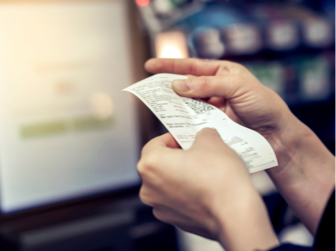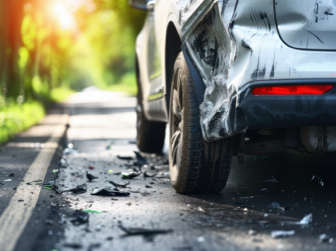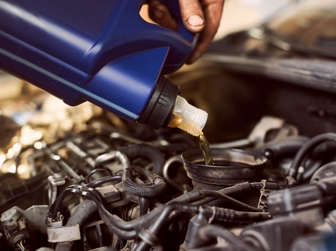A lot of people rely on their vehicle to get them where they need to go. What many don’t know is that blowouts can and have happened, sometimes catching us off guard in an instant. Nonetheless, you can manoeuvre safely even if you do end up with a burst or exploded tyre as a result of a tyre blowout. Be mindful when driving, use the information in this guide to keep yourself and others safe.
Emergency Guide: Managing a Tyre Blowout
There are several reasons why tyres burst. Getting familiar with what a tyre blowout is and what to do if it happens to you will save you a trip to the emergency room.
What does a tyre blowout mean?
A tyre burst or blowout occurs when the integrity of the tyre structure is compromised. Pressurised air escapes from the tyre, tearing through its surface and eventually exploding.
What causes it?
In the event that you've already experienced a busted tyre, your next drive may make you feel paranoid.
Here are the common causes, according to Supa Quick tyre experts:
- Continuous heat buildup weakens your tyres.
- High-speed driving combined with the hot surface of the road increases the risk.
- Faulty Tyres that show signs of ageing or wear and tear become far less reliable. Tyres typically have a threshold of 10 years, assuming the driving style is well above average.
- Colliding with objects or driving directly into potholes and other hazardous material will cause enough damage.
What you need to do if your Tyre(s) explodes
Sometimes, we're able to detect what’s causing a problem; however, our skills and information might not be enough if something were to go wrong on the highway or open road. When faced with a burst tyre, there are some tips you can follow to help you deal with the situation.
Avoid sudden braking
As soon as we are unsure of what is happening around us or to us, our adrenaline kicks in. And while we have all heard about emergency braking when driving too close to someone, it’s the last thing you should do here. This is because you risk losing complete control, which could result in your vehicle spinning or flipping.
Stick to the speed limit
You're better off sticking to the speed limit. It's not just a legal matter, but it's also a safety issue. If you happen to encounter a random road incident, you're better off going at a slower speed. So, if something goes wrong, such as an explosion of your tyre, you'll have more control.
Don’t try to overcorrect
Maintain control of your vehicle as much as possible to avoid losing control and colliding with other vehicles. Avoid steering sharply in the opposite direction when your car swerves. It may seem like a natural reflex, but it’s a dangerous one.
Coast to a stop if you can
If you can, come to a stop gradually rather than slamming on the brakes. Make sure your hazards are on and make way for an emergency lane if possible.
Tyre maintenance tips
Taking care of your tyres can help you reduce the risk of a road accident. Here are some tyre care tips you can follow.
- Regularly inspect your tyres for uneven wear and check if any objects have wedged in the tread.
- Clean your tyres regularly with soap, water, and elbow grease to prevent foreign objects from degrading your tyres.
- If you're unsure about the period, rotate your tyres every 12,000 km. Keeping your tyres rotated consistently reduces the risk of exploding tyres.
- The correct alignment and balancing of your wheels will keep your tires pointed in the right direction and ensure there is equal weight distribution on them. A poorly aligned or misaligned tire will eventually wear more than others, reducing its lifespan.
Keep your car and tyres in working condition with a Service Plan
A comprehensive service plan ensures that your vehicle gets the regular maintenance it needs.
If you’d like to know more, check out our blog about maximising your car with a Service Plan.
What are the benefits and coverage of an Extended Car Warranty in South Africa
Top 10 water parks, wildlife tours, and amusement parks in South Africa


